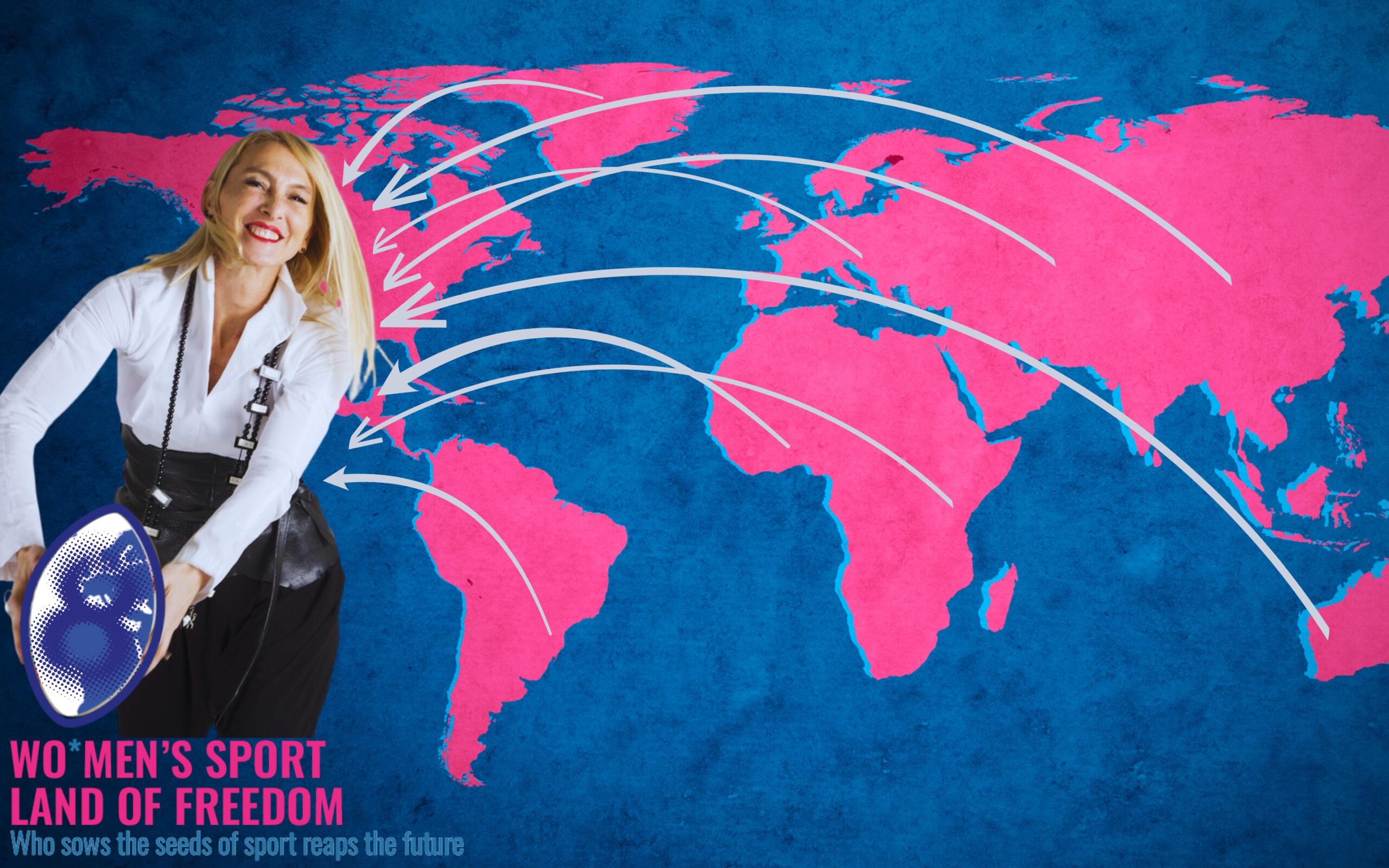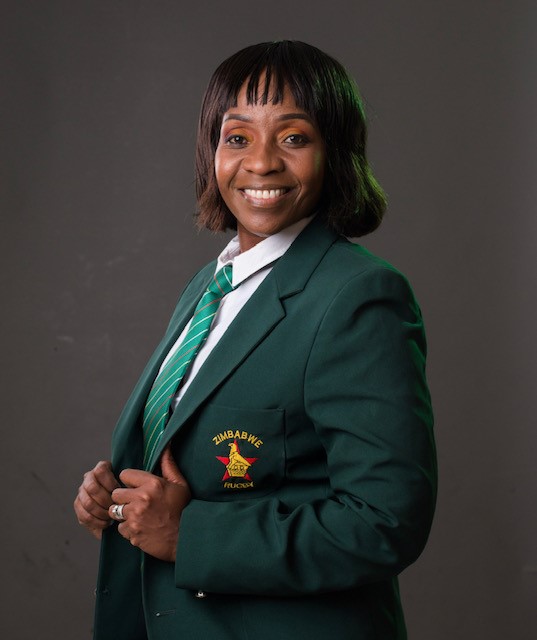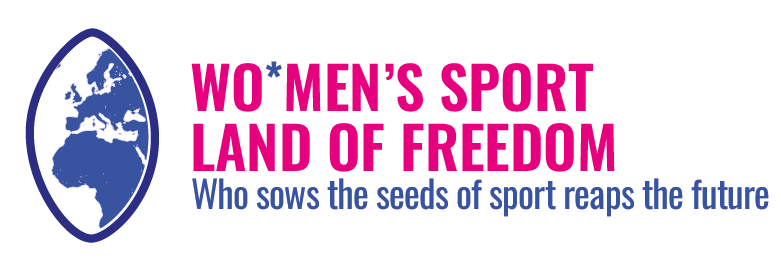
ZIMBABWE: BE THE TREE THAT FEEDS THE COMMUNITY THAT BROUGHT YOU HERE
“I believe a tree has fruit to feed others, no tree consumes its own fruit, its all for the benefit of others. If you have been blessed enough or grown to a stage where you now bear fruit – makesure others are benefiting from your fruit. We eat fruit for enjoyment, for nourishment! Be that for someone else, because someone else (even rugby) got you to where you are.”

Thanks to:
Abigail Kawonza
Zimbabwe rugby referee president
- The history of the women’s movement in Zimbabwe
- Testimonials
- Reading time: 7 minutes
ZIMBABWE - Find out more
ZIMBABWE is a landlocked country in Southern Africa. In 2022, the population was around 15.18 million, with an estimated annual growth of 1.5% and approximately 52% of the population being women. It has been a presidential republic since 1980.As of February 2024, women hold about 28.9% of parliamentary seats. The female labor force participation rate is approximately 59.6%, while the male rate is 71.2%. Although the right to education is widely guaranteed, challenges persist due to early marriages (33.7% of women married before age 18) and adolescent pregnancies (86.8 per 1,000 women aged 15–19).(SOURCE: data.unwomen.org)
HISTORY OF THE COUNTRY
1. When did the women’s rugby movement start in your country?
Women’s rugby started in 1999, I was fortunate enough then to be, one living near a rugby club and secondly working as a personal assistant, immediately after school for one of the board members. I watched rugby all the time, but when I heard they were starting women’s I was the one of the first to jump over the fence to the other side, and never regretted it!
2. What is the history of women’s rugby in your country?
It’s been a long road, a hard road! Initially I think the union had to include women so that they were compliant with World Rugby, so not much effort and funding was directed to us. We started off training at one sports club, all the women who were keen, we through the ball all sorts of directions and screamed a lot! With the numbers rising we split into two clubs – still strong rivals to this day. After a couple of years of local competitions we decided to venture outside the borders. Playing both versions of the game and getting hammered at every turn! This was expected though, we saw results like 85-00 when we first traveled to SA to play a university team, our first 15s game, with me as captain the number 10 jersey. We crossed over to Zambia and Botswana for 7s games and tournaments, likewise we came dead last but enjoying the amazing experience. With more hours on the park and a little more exposure we started performing well, especially in 7s were in 2016 we were actually ranked 3rd in Africa, with me as head coach. The teams continue to take each stride as we try get more competitions and take each step up the rankings.
I say the road has been a hard one because in a country like Zimbabwe financing the girl child to play a man’s sport is very difficult. We’ve had to beg and borrow to get us where we can be recognized as serious! To date we do not even get a 10th of what our male colleagues get for playing or towards the growth of the game.
3. How many clubs are there, and how is women’s rugby structured in your country?
At present there are about 15 senior clubs in the country, but we have more at junior levels – the under 20 has a wider pool as the structures at school levels are solid. We have more than 40 schools playing girls rugby, our U18 team is one of the strongest in the region, yielding great results year after year. This assures us that in the next coming years the future of womens rugby is bright as we try and retain this talent from school, to tertiary and senior levels.
4. Do you think playing rugby has a social impact for a woman in your country?
DEFINITELY! I met my husband while still playing rugby, albeit later in my years, but I was immediately told to stop as it did not portray a “wifely” imagine. But because of my passion I found other ways to channel the love and commitment I have for the sport. Because there is no “income” families look at rugby as a waste of time, we are not professionals or even an amateur sport, we struggle to get by as a womens franchise and this is clear as we cannot meet our girls demands for proper diet, gym or lifestyle. So conventional families will always seek other paths for their girl child – marriage, further schooling or another profession.
5. In your opinion, what can rugby give to women in your country?
Rugby can and has given so much to women in Zimbabwe. We have huge social and economic issues, even religious issues as well. Rugby is still considered elitist, and spreading it to the underprivileged has been very difficult, and that’s where I think we need to have an impact. The poorer families, like most African countries will marry off the girls very early, so they can benefit from the dowry and have one less mouth to feed! So getting these girls onto the field takes them away early marriages, unwanted pregnancies and away from drugs and prostitution which is always the end game for hungry and desperate girls. We already have solid testimonies of how girls have improved their lives, been on a plane for the first time, crossed borders for the first time and found jobs, completed school through contacts in the rugby community. Yes we all want to get to the world cup or Olympics, but the first step is to increase participation and give women a better lifestyle through the sport. I have first hand evidence of girls I used to coach who:-
- used to come to training without eating because there was no food at home
- had turned to prostitution for income
- was rapped before the age of 16
- married off and a mother of two before the age of 21
Rugby has given these and many more a lifeline!
JOURNEYS THROUGH RUGBY
1. When did you start playing rugby?
I was lucky enough to be one of the pioneers of womens rugby in Zimbabwe at the age of 20, nearly 30 years ago!!
2. How did you first learn about its existence?
I was fortunate enough to live near a sports club, Old Georgians, every opportunity I had I would be in the crowd watching matches. I was also lucky to have been working on attachment immediately after school for one of the rugby board members. When he told me the Union was starting womens rugby I was so eager to jump from the bleachers on the field!
3. What have you learned from rugby that has impacted your daily life?
Wow! So much, the one thing is that rugby has given me so much and because it has enabled me, I can enable others! I grew from a fan, to a player, to a national head coach, to a referee, a referee president and so on. Through this I have learnt a life of fun – through rugby, giving, teamwork, comradery and discipline, a drive to achieve whatever is set before me.
4. Can you give me an example of when a rugby mindset has been helpful to you?
My family left Zimbabwe when I was still in school and relocated to South Africa, my older siblings moved to Europe, the younger ones with my parents to south Africa. From a family of 7 kids life became suddenly very lonely – but rugby gave me a family, friends, mentors and success! Alone you can live life but with others you can live a full life full of success driven by a common passion. You need people to help you, uplift you and in turn your successes and lessons impacted on the generation to follow.
5. Can you give me 3 words that connect rugby to freedom?
Freedom is synonymous with the following words:
PRIVILEDGE – I have had opportunities to work with great people. Priviledge to travel the world, be it as a player, a coach, a match official or just a crazy fan. I was in France for the mens world cup and planning on making the womens world cup in England!
RELEASE – our rugby arena is a place one can release frustrations, stresses and just enjoy the pleasures of the game – with family and friends
EMANCIPATION I have always loved sport in school and growing up. After school I did my tertiary education via correspondence while I was a full-time employee – accounting – if that’s not stressful enough! Having the freedom to express one’s passion away from the stresses (bondages) of life (work, school, marriage) etc is very emancipating!
6. What does live in a land of freedom mean to you?
Having the ‘freedom’ express oneself, having the opportunities to assist the next generation to get more than you ever had.
7. What object represents you and why?
A round ball! Not bound by edges or corners that can restrict movement, can roll with punches and roll with the flow to better and greener pastures.
